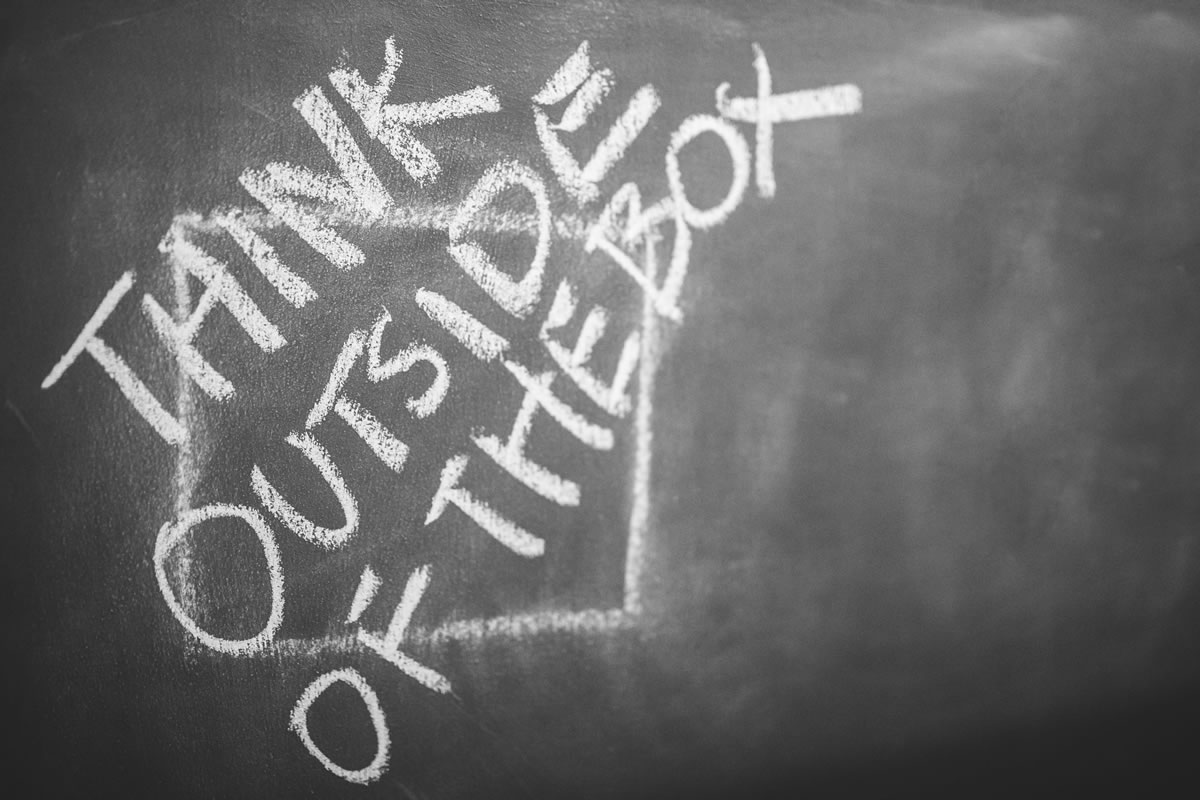Insights
How can I Think Outside The Box, if I don’t Know The Box is There?
Avoiding Becoming Trapped In Your Mindset

Many significant business failures can be traced back to companies developing a fixed mindset about the future environment for that business, which meant they couldn’t see what was obvious, either to others, or with hindsight.
Corporate culture is a powerful beast. As a part of this, a particular view of the future gets established and most people coalesce around it – even though you know it’s going to be wrong to some degree. Views get fixed because power has been exercised, senior positions have been established, internal political capital has been spent, dissenters have been marginalised or expelled and investments have been made. Views turn to cement as confirmation bias sets in and people give too little attention to the weak signals which show they could be wrong.
At a time when the world is changing very quickly, how can organisations ensure that they keep an open mind and avoid becoming prisoners of a particular mindset?
This is a problem not only with respect to an organisation’s future strategy as its environment changes. This failure to think outside the box can be a powerful limitation on solving complex issues and problems, as organisations fail to examine their unconscious assumptions – Donald Rumsfeld’s famous “unknown unknowns”.
This is not just about avoiding failure – important thought that is. New ways of thinking or fresh insights into existing problems can produce bursts of creative energy which also contribute to an increased likelihood of success.
How then, do we get teams to open their minds to different ways of thinking, or of viewing the world?
Done in the right way, taking a team through a process of scenario planning is a proven way of avoiding these pitfalls. In my own work, I have seen this applied across a range of applications:
- Preparing future corporate strategies
- Examining approaches to new geography entry plans
- Producing fresh ways of thinking about particularly complex and difficult problems
As people participate in exploring different possible, internally consistent futures or possibilities, several things happen:
- They have to suspend their biases and judgment on “what will be” and instead explore “what might be”.
- They have to actively listen to each other, explore and understand:
- How these different worlds work
- What forces are at play
- How we might get from where we currently are to each of these different possible futures
- Because people are exploring ideas, rather than defending positions, it’s a powerful tool for opening minds and producing fresh insights.
All of this means that there’s at least as much value in the process as there is in the product.
We’re not dealing with a theoretical problem here. Consider:
- The bankruptcy of film-maker Kodak, whose staff invented the first digital camera and were rejected
- The near-death experience of IBM, whose blindness to the possibility of desk-top computing nearly killed them
- US-based Target, whose failed entry to the Canadian market showed too inflexible a mindset and cost the CEO his job
These are all examples of how an organisation’s blind spots can be potentially fatal.
Three questions to ask yourself:
- How do I know if we’ve become the prisoner of a fixed mindset or inflexible view of the future?
- How do we know what we don’t know?
- If I want to change, how can I carry others with me and avoid being a lonely, outlier voice?
Some steps you can take:
Gather together a group of peers over an informal lunch and talk about three things:
- Technological innovation, new ways of working and evolving societal expectations are all rapidly changing the art of the possible. If a competitor was to start afresh in your space, how would they do things? To what extent would they copy you or how could they use newer technology and different organisational models to do things more effectively? (Think how Sears, with its catalogue approach could have become Amazon. Instead, Bezos did it). How much could you adapt to deliver their hypothetical, ideal new model before someone else does it?
- Would a new competitor even try to go head to head with you, or would they go around you and disintermediate you? (Think how Airbnb has disintermediated hotel chains, coming between them and their customers, and become one of the world’s largest hoteliers without owning any residential buildings). Instead of being victims, could we become disintermediators ourselves?
- Otto von Bismarck once said that, “Only a fool learns from his own mistakes. The wise man learns from the mistakes of others.” Think about some of the failures you’ve seen in organisations roughly analogous to yours. What can be learned from them?
Please contact us for further help on how scenarios can be used to stimulate new thinking.
for a Private, No Obligation Discussion
Other Articles
There are some key differences between consulting and coaching. Which one do you actually need?
Deer in the headlights often jump in the wrong direction: Avoiding self-inflicted wounds under pressure…
Eight reasons why using a facilitator greatly accelerates your organisation’s effectiveness.




